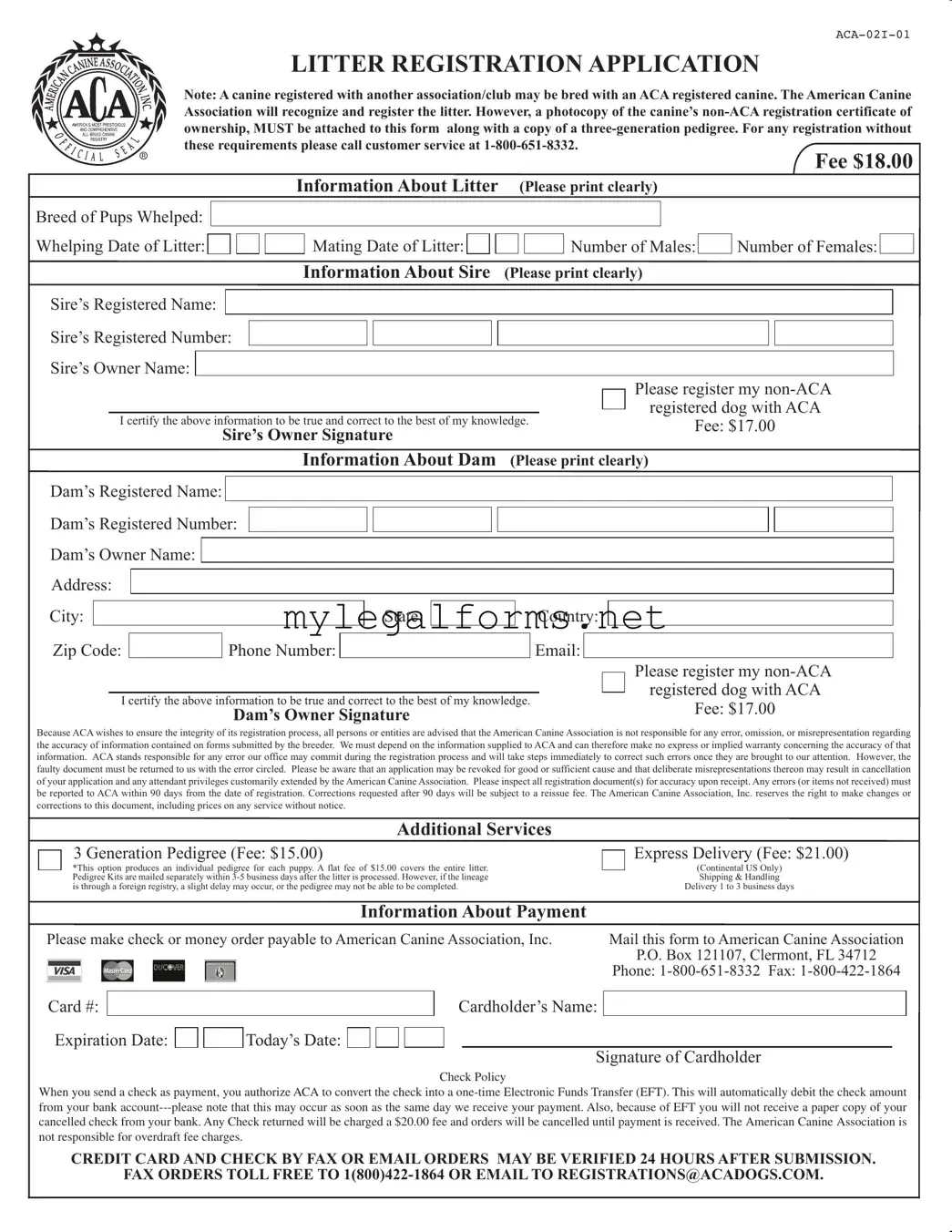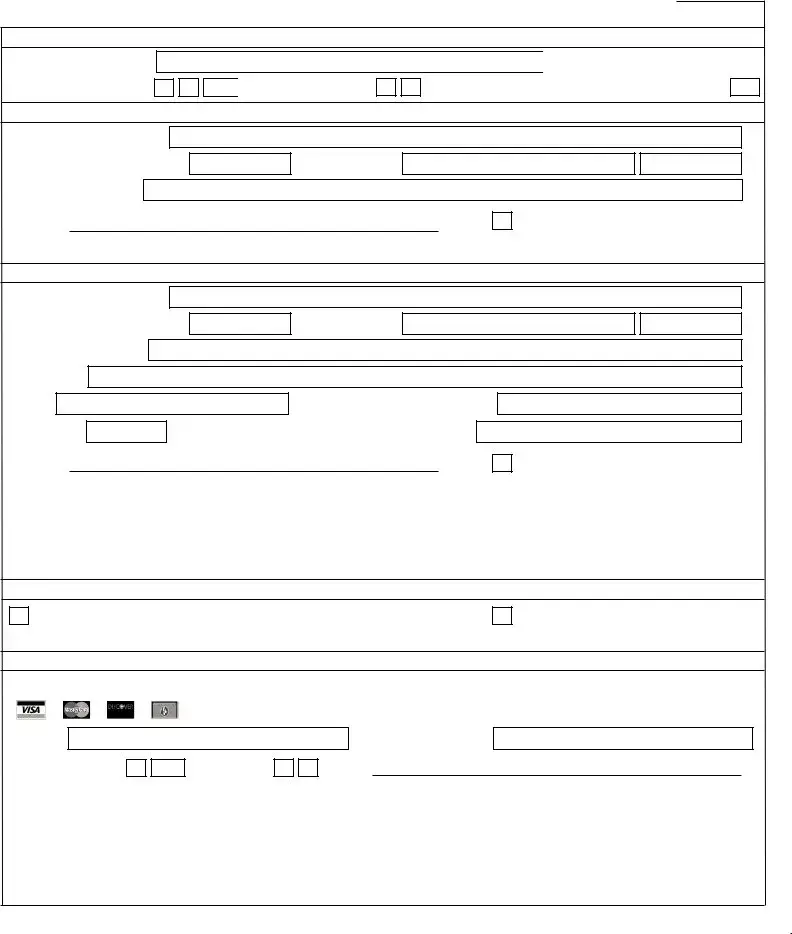Aca Litter Registration Template
The Aca Litter Registration form serves as an essential document for breeders looking to register a litter of puppies with the American Canine Association (ACA). This form requires detailed information about the sire and dam, as well as specific documentation to ensure the integrity of the registration process. Proper completion of this form facilitates the recognition and registration of litters, promoting responsible breeding practices within the canine community.
Launch Aca Litter Registration Editor

Aca Litter Registration Template
Launch Aca Litter Registration Editor

Launch Aca Litter Registration Editor
or
⇓ PDF Form
Complete the form at your pace — fast
Finish your Aca Litter Registration online and download the final version.

 Fee $18.00
Fee $18.00